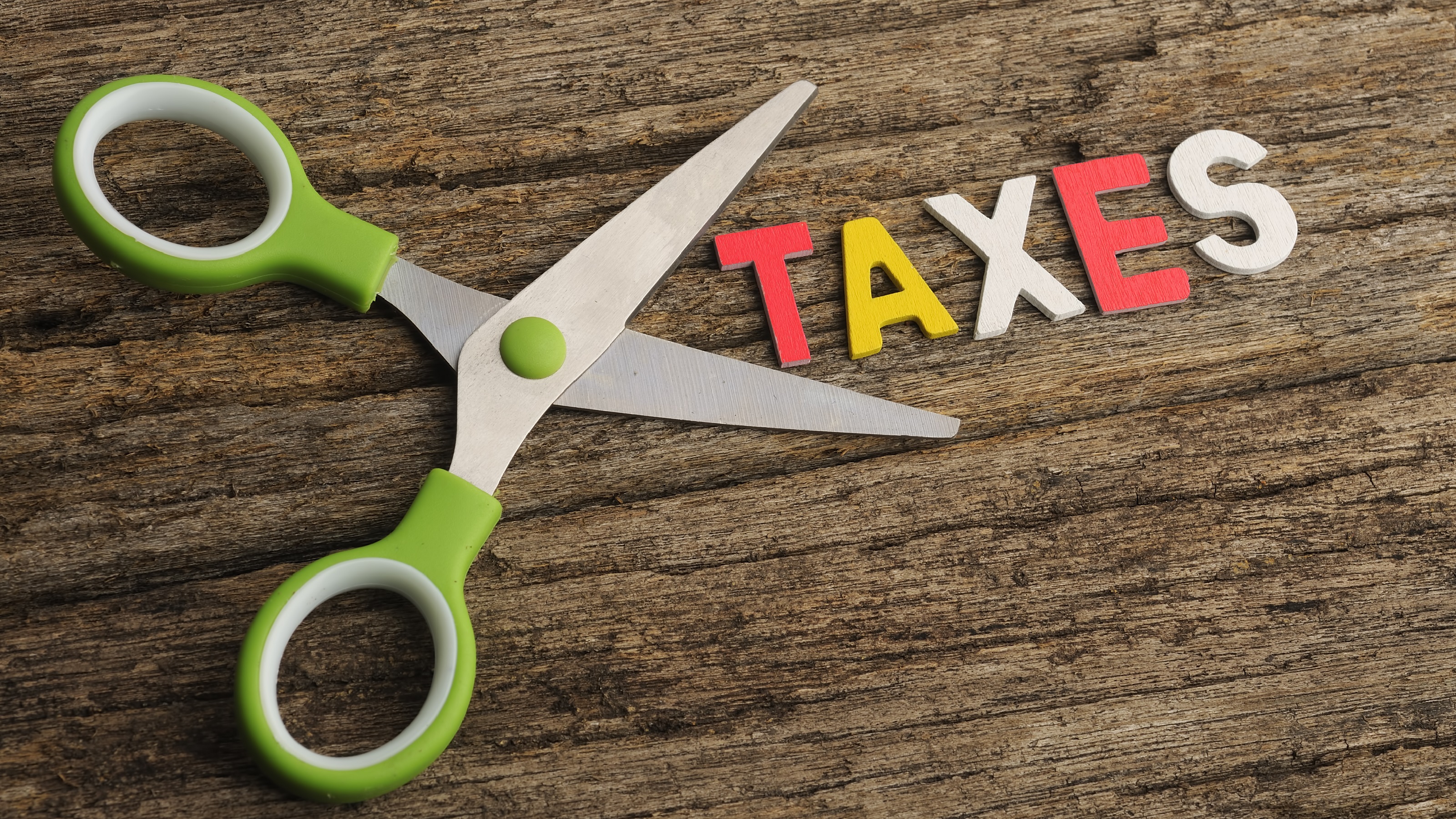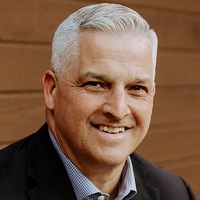Three Strategies to Cut Your Taxes in Retirement
All that money in your tax-deferred retirement accounts? Uncle Sam is going to want his cut, so here's how to prepare for that.


Profit and prosper with the best of Kiplinger's advice on investing, taxes, retirement, personal finance and much more. Delivered daily. Enter your email in the box and click Sign Me Up.
You are now subscribed
Your newsletter sign-up was successful
Want to add more newsletters?

Delivered daily
Kiplinger Today
Profit and prosper with the best of Kiplinger's advice on investing, taxes, retirement, personal finance and much more delivered daily. Smart money moves start here.

Sent five days a week
Kiplinger A Step Ahead
Get practical help to make better financial decisions in your everyday life, from spending to savings on top deals.

Delivered daily
Kiplinger Closing Bell
Get today's biggest financial and investing headlines delivered to your inbox every day the U.S. stock market is open.

Sent twice a week
Kiplinger Adviser Intel
Financial pros across the country share best practices and fresh tactics to preserve and grow your wealth.

Delivered weekly
Kiplinger Tax Tips
Trim your federal and state tax bills with practical tax-planning and tax-cutting strategies.

Sent twice a week
Kiplinger Retirement Tips
Your twice-a-week guide to planning and enjoying a financially secure and richly rewarding retirement

Sent bimonthly.
Kiplinger Adviser Angle
Insights for advisers, wealth managers and other financial professionals.

Sent twice a week
Kiplinger Investing Weekly
Your twice-a-week roundup of promising stocks, funds, companies and industries you should consider, ones you should avoid, and why.

Sent weekly for six weeks
Kiplinger Invest for Retirement
Your step-by-step six-part series on how to invest for retirement, from devising a successful strategy to exactly which investments to choose.
Retirees keeping an attentive eye on their finances often concentrate, as you might expect, on how well their investments are doing. Return on investment is important, certainly, but something else can have an even bigger impact on retirement portfolios: income taxes, one of the biggest expenses for many retirees.
That surprises a lot of people, especially those who anticipate their tax bill will go down once they stop working. Unfortunately, Uncle Sam is just as interested in you in retirement as he was in your working years — in some ways even more so.
Often, a good chunk of retirement savings is in tax-deferred accounts, such as traditional IRAs or 401(k)s. The IRS allowed you to make contributions to those accounts over the years without paying taxes on that income.
From just $107.88 $24.99 for Kiplinger Personal Finance
Become a smarter, better informed investor. Subscribe from just $107.88 $24.99, plus get up to 4 Special Issues

Sign up for Kiplinger’s Free Newsletters
Profit and prosper with the best of expert advice on investing, taxes, retirement, personal finance and more - straight to your e-mail.
Profit and prosper with the best of expert advice - straight to your e-mail.
Eventually, though, the “deferred” part of “tax-deferred” comes into play, and the IRS wants the money you postponed paying. When you retire and start withdrawing money from those accounts to live on, the withdrawals are taxed as income. Plus, when you hit age 73, required minimum distributions (RMDs) kick in, and the federal government requires you to withdraw a certain percentage each year, whether you want to or not. As you can see, there comes a point where the IRS loses patience with waiting for its money.
Why tax-efficient strategies are important
RMDs are just one of the many reasons tax-efficient strategies should be a significant part of your financial planning. Sadly, for many people, this doesn’t happen at all. Or, if it does happen, it may consist almost entirely of tax-loss harvesting, a strategy that consists of reviewing investments at the end of the year with an eye on the winners and losers. The idea is to sell stock that is worth less than when you paid for it. The loss you take can help offset gains you made with other investments, reducing your overall tax bill.
It’s a strategy that works well for some people, but one strategy put into action at the end of the year hardly constitutes a tax-efficient strategy. Ideally, this happens year-round as you and your financial adviser stay aware of the tax implications of all your financial moves and are always on the lookout for opportunities to pay less to Uncle Sam and keep more in your pocket.
What might such strategies include? Here are a few examples:
1. Setting up a qualified charitable distribution.
This strategy, commonly referred to as a QCD, goes hand-in-hand with RMDs. Here’s how it works: When you withdraw money from an IRA, instead of moving the money into a personal account, you can transfer the funds directly to a nonprofit or a church. In that case, the money is not taxed. You keep your tax bill lower, while at the same time contributing to a favorite cause. A bonus is: You don’t have to itemize deductions to take advantage of the QCD.
Even if you use the standard deduction, the option is there. QCDs do come with rules, including you must be at least 70½ years old, so it’s important to understand the details. A financial professional who has worked with QCDs can help you find your way around any difficulties.
2. Making Roth conversions.
Roth conversions have become one of the most popular ways to lower your future tax bills. The conversion involves moving your money from a tax-deferred account, such as a traditional IRA or 401(k), to a Roth IRA. The money is taxed when you make the conversion, but it then grows tax-free. When you make withdrawals in retirement, you pay no taxes.
One misconception people have is if they are in the highest tax bracket — 37% — then it doesn’t make sense to consider a Roth because the taxes on the transfer would be too high. But the conversion can still pay off, even in the higher tax bracket. Plus, for those who don’t anticipate that they will need to spend the money in the IRA, a Roth is a more tax-efficient way to leave a legacy to your beneficiaries than a traditional IRA.
3. Preparing for a potential tax increase in less than two years.
While some people hope their tax bill will drop in retirement, we all could be looking at higher taxes in less than two years. That is because the Tax Cuts and Jobs Act of 2017 expires at the end of 2025. Unless Congress passes legislation to change things, the tax brackets are scheduled to go up as of January 1, 2026, returning to where they were before the act was passed.
Right now, many people aren’t paying attention to that looming jolt to their tax bill, but they could be in for a rude awakening. The return of tax brackets to their pre-2017 level is one more important reason why tax-efficient strategies are needed. QCDs and Roth conversions can help, but there are other strategies to consider as you get ready for 2026.
The main thing, though, is to be aware of the pending increase and to have a plan in place to try to counteract it.
As you can see, planning for taxes can be even more important than the rate of return on your money. You don’t want to grow your money only to see Uncle Sam arrive with oversized pruning shears to snip that growth away.
The good news is you don’t have to do your planning alone. A financial professional with a good understanding of taxes can help you plot a course of action that will work best for your needs — and keep your tax bill as low as possible in the process.
Ronnie Blair contributed to this article.
The appearances in Kiplinger were obtained through a PR program. The columnist received assistance from a public relations firm in preparing this piece for submission to Kiplinger.com. Kiplinger was not compensated in any way.
Investment advisory products and services made available through AE Wealth Management, LLC (AEWM), a Registered Investment Adviser. Please remember that converting an employer plan account to a Roth IRA is a taxable event. Increased taxable income from the Roth IRA conversion may have several consequences. Be sure to consult with a qualified tax advisor before making any decisions regarding your IRA. Neither the firm nor its agents or representatives may give tax or legal advice. Individuals should consult with a qualified professional for guidance before making any purchasing decisions. 2446435 07/24
Related Content
- 13 States That Don't Tax Retirement Income
- How the IRS Taxes Retirement Income
- Calculating Taxes on Social Security Benefits
- How Many Retirement ‘Tax Buckets’ Do You Have?
- Six Tax Breaks That Get Better With Age
Profit and prosper with the best of Kiplinger's advice on investing, taxes, retirement, personal finance and much more. Delivered daily. Enter your email in the box and click Sign Me Up.

Michael Miller, a financial adviser with Endependence Financial, has dedicated his career to guiding clients through the complexities of financial planning. His education and background as a financial adviser equipped him with the knowledge to address a wide range of financial issues. He can offer both insurance and investment products and services. He has obtained his series 65 and 66 licenses and has a master’s degree in finance.
-
 Nasdaq Leads a Rocky Risk-On Rally: Stock Market Today
Nasdaq Leads a Rocky Risk-On Rally: Stock Market TodayAnother worrying bout of late-session weakness couldn't take down the main equity indexes on Wednesday.
-
 Quiz: Do You Know How to Avoid the "Medigap Trap?"
Quiz: Do You Know How to Avoid the "Medigap Trap?"Quiz Test your basic knowledge of the "Medigap Trap" in our quick quiz.
-
 5 Top Tax-Efficient Mutual Funds for Smarter Investing
5 Top Tax-Efficient Mutual Funds for Smarter InvestingMutual funds are many things, but "tax-friendly" usually isn't one of them. These are the exceptions.
-
 Social Security Break-Even Math Is Helpful, But Don't Let It Dictate When You'll File
Social Security Break-Even Math Is Helpful, But Don't Let It Dictate When You'll FileYour Social Security break-even age tells you how long you'd need to live for delaying to pay off, but shouldn't be the sole basis for deciding when to claim.
-
 I'm an Opportunity Zone Pro: This Is How to Deliver Roth-Like Tax-Free Growth (Without Contribution Limits)
I'm an Opportunity Zone Pro: This Is How to Deliver Roth-Like Tax-Free Growth (Without Contribution Limits)Investors who combine Roth IRAs, the gold standard of tax-free savings, with qualified opportunity funds could enjoy decades of tax-free growth.
-
 One of the Most Powerful Wealth-Building Moves a Woman Can Make: A Midcareer Pivot
One of the Most Powerful Wealth-Building Moves a Woman Can Make: A Midcareer PivotIf it feels like you can't sustain what you're doing for the next 20 years, it's time for an honest look at what's draining you and what energizes you.
-
 I'm a Wealth Adviser Obsessed With Mahjong: Here Are 8 Ways It Can Teach Us How to Manage Our Money
I'm a Wealth Adviser Obsessed With Mahjong: Here Are 8 Ways It Can Teach Us How to Manage Our MoneyThis increasingly popular Chinese game can teach us not only how to help manage our money but also how important it is to connect with other people.
-
 Looking for a Financial Book That Won't Put Your Young Adult to Sleep? This One Makes 'Cents'
Looking for a Financial Book That Won't Put Your Young Adult to Sleep? This One Makes 'Cents'"Wealth Your Way" by Cosmo DeStefano offers a highly accessible guide for young adults and their parents on building wealth through simple, consistent habits.
-
 Global Uncertainty Has Investors Running Scared: This Is How Advisers Can Reassure Them
Global Uncertainty Has Investors Running Scared: This Is How Advisers Can Reassure ThemHow can advisers reassure clients nervous about their plans in an increasingly complex and rapidly changing world? This conversational framework provides the key.
-
 I'm a Real Estate Investing Pro: This Is How to Use 1031 Exchanges to Scale Up Your Real Estate Empire
I'm a Real Estate Investing Pro: This Is How to Use 1031 Exchanges to Scale Up Your Real Estate EmpireSmall rental properties can be excellent investments, but you can use 1031 exchanges to transition to commercial real estate for bigger wealth-building.
-
 Should You Jump on the Roth Conversion Bandwagon? A Financial Adviser Weighs In
Should You Jump on the Roth Conversion Bandwagon? A Financial Adviser Weighs InRoth conversions are all the rage, but what works well for one household can cause financial strain for another. This is what you should consider before moving ahead.